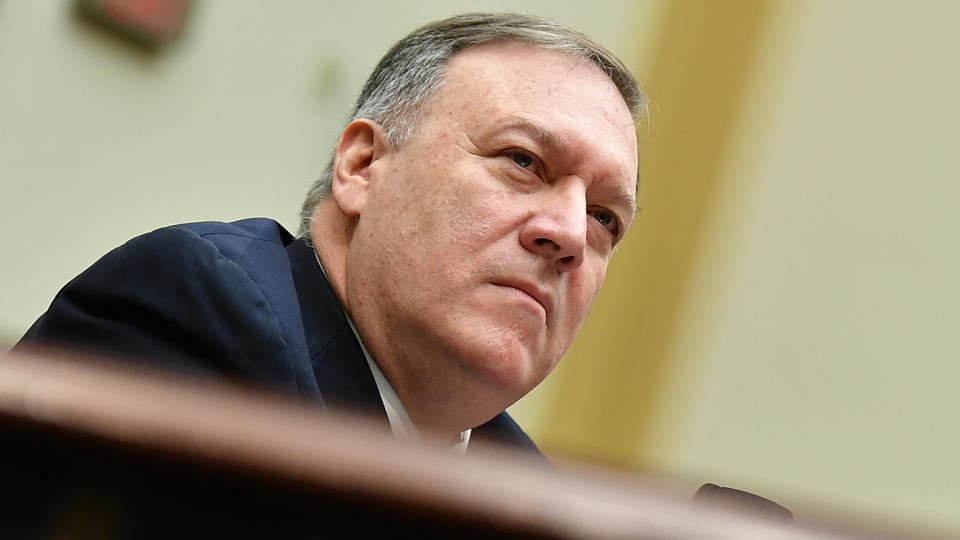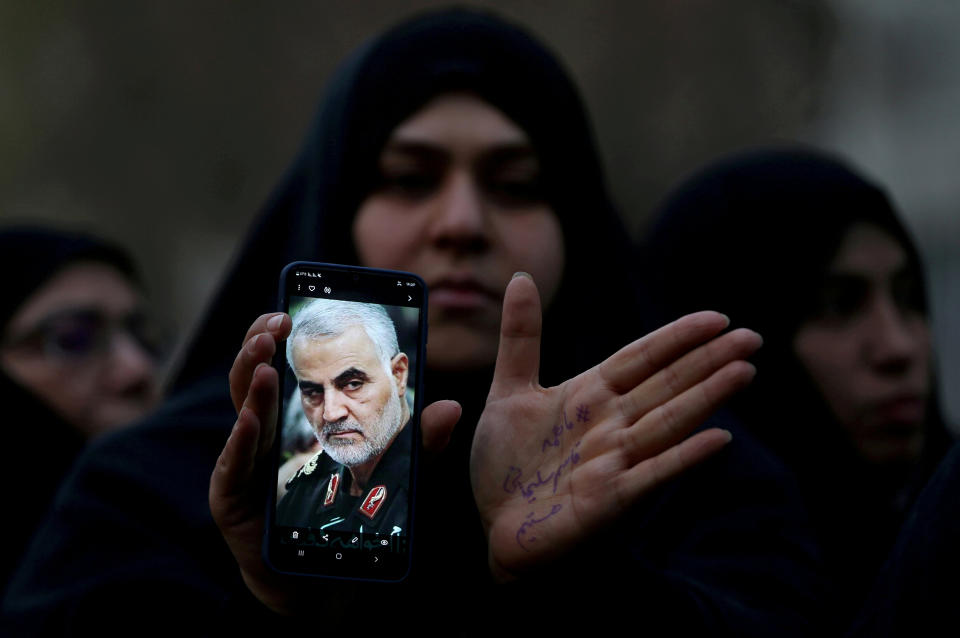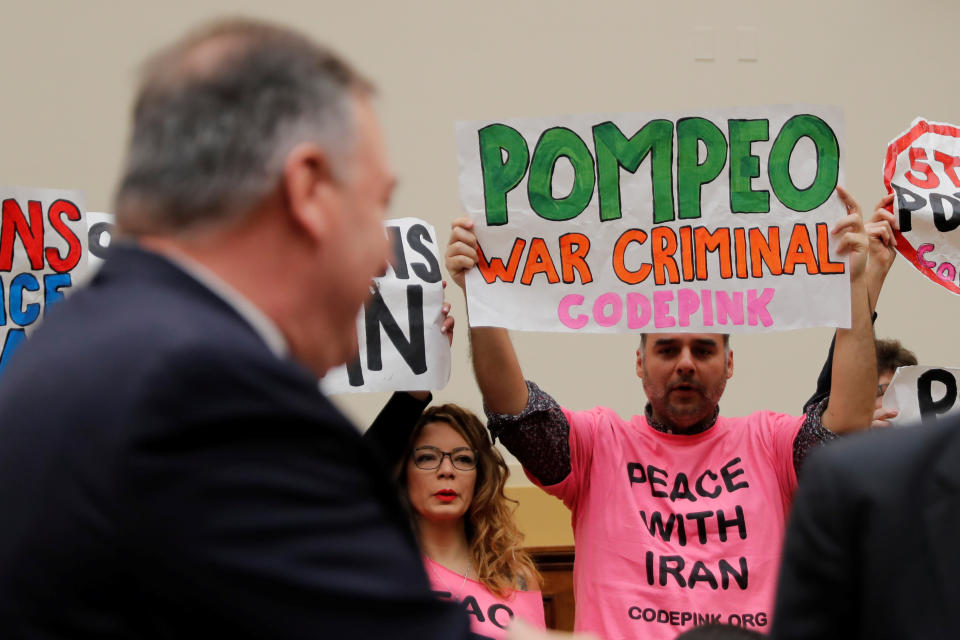Defiant Pompeo defends killing of Iran’s ‘top terrorist,’ but provides no threat details
- Oops!Something went wrong.Please try again later.
Secretary of State Mike Pompeo aggressively defended the Trump administration’s decision to kill Iranian Gen. Qassem Soleimani in a contentious hearing before the House Foreign Affairs Committee Friday.
Soleimani was the head of the Islamic Republican Guard Corps’ Quds Force, which coordinates the activities of several pro-Iranian proxy militias across the Middle East. The United States, which holds the iconic general responsible for the deaths of more than 600 U.S. soldiers at the hands of some of those militias in Iraq, killed him and several other Quds Force and militia members in a drone strike just outside Baghdad International Airport on the night of Jan. 2.

Referring to Soleimani as Iran’s “top terrorist,” Pompeo said the decision to kill him “was a de-escalatory measure.” Iran responded to Soleimani’s death on Jan. 8 with ballistic missile barrages against Iraqi air bases housing U.S. troops in the Anbar province and Erbil that the Defense Department says injured 110 U.S. personnel. What the secretary described as “the limited nature” of that response “indicates that Iran’s leadership is not eager to escalate a military confrontation” with the United States, Pompeo said. “There was strategic deterrence that resulted from that strike,” he added.
However, citing classification, Pompeo declined to provide a detailed answer to a question on how Iran’s behavior has changed in the wake of the strike, other than to say that the Iranians now recognize and appreciate the “seriousness” of the administration of President Trump when it comes to defending the United States and its partners from Iran.
That was not the only time that Pompeo cited classification issues in refusing to fully answer questions from both Democrats and Republicans. In particular, he used it as a defense during a series of testy exchanges with Democratic committee members over the administration’s evolving rationale for the strike against Soleimani.

Virginia Democratic Rep. Abigail Spanberger, a former CIA officer, claimed that on the same day that Pompeo said publicly that the United States had “specific information on an imminent threat, and those threats included U.S. embassies,” he gave a classified briefing to Congress in which he provided no evidence of such a threat — evidence Spanberger said was necessary to justify launching the strike without consulting Congress.
Pompeo rejected her assertion. “We absolutely did” provide evidence, he said.
Spanberger parried with the fact that the administration’s official written justification for the strike, provided to Congress on Jan. 31, contained no specific reference to an imminent threat to U.S. embassies. “You said there were imminent threats to American lives, and that’s not true,” she said.
In what appeared to be the congressional hearing equivalent of a subtweet, Michigan Democratic Rep. Andy Levin showed Pompeo a map of the world showing national borders, but no names of countries, and asked Pompeo to point to the locations of the embassies that were under the threat of imminent attack. Pompeo, who had allegedly challenged an NPR reporter to find Ukraine on a blank map during a widely reported foul-mouthed tirade Jan. 24, said he was “happy to answer” Levin’s question, but immediately followed that by saying, “I’m not going to get into classified material.”
“You can’t hide behind classification on this one because you can’t classify something that doesn’t exist,” Levin replied, before playing a clip of Trump saying that he believed four U.S embassies had been under threat. As Spanberger had, Levin said that when Pompeo briefed Congress Jan. 10, “we didn’t hear a word from you on the threats to four embassies — why not?”

“There were multiple embassies which my diplomatic security team had enormous concern about,” Pompeo replied. Texas Democrat Joaquin Castro said that as a member of the House Intelligence Committee, he’d seen the classified material to which Pompeo was referring, “and after reviewing it, I don’t believe you’re telling us the truth.” He urged the secretary to declassify as much of the material as possible.
Although Pompeo repeatedly offered to share classified material “in another setting” — presumably a closed hearing or classified briefing — several Democratic representatives criticized the secretary for making himself available to discuss the Soleimani strike for only two hours, contrasting his approach with that of former Secretary of State Hillary Clinton, who sat for 11 hours of questioning on the events surrounding the 2012 attack on U.S. government facilities in Benghazi, Libya.
_____
Read more from Yahoo News:



